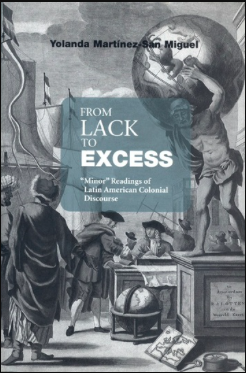In spite of one of the comments at the back of Gareth Williams’ Infrapolitical Passages. Global Turmoil, Narco-Accumulation, and the Post-Sovereign State (2021) that praises William’s ability for “announcing problems”, after reading the book one sees that Infrapolitical Passages doesn’t really announce anything. That is, the problems that the book “announces” are already lost causes. And more than an announcing, at the end of the book, after we’ve witnessed one of the most accurate, pessimistic and well explained analysis of our current times of crisis, we read about the “advent of the infrapolitical decision of existence” (190).
Divided in two parts, the book’s main task is to clear the surface of knowledge so that an infrapolitical register may resound. How is it that things ended up like this? Whatever could have happened? These are some of the questions that the book suggests. The thing is that the book is not very interested in knowing why things are how they are, but rather to know how one should confront the uncanniness of our times. This logic is then, as Williams writes following Alberto Moreiras, that the infrapolitical seeks not to “fantazise about the possibility of freeing oneself from nihilism but to confront the consequences of actively skimming over nihilism in the name of a transcendent, messianic counterpolitics” (22). As a result, the first part of the book is the deep analysis on why most (if not all) of contemporary thought self congratulates in the search for palliative solutions while embracing an unfavorable messianic counterpolitics. In response to all the failures of both the right and the left, Williams bets on “what remains unaccounted for, and what the tradition has concealed”, this is the register of infrapolitics, the writing, or trace, that “regulatory representation cannot capture or domesticate” (95). If all politics have attempted to surrender existence, the truth is that existence always presupposes and exceeds politics. At the same time, the problems yet to analyze are not only those of the world of techne but of the uncanny register of everyday existence in times of post- katechon, decontainment and narco-accumulation.
These three terms are fully engaged in the second part of the book. If the katechon was (is) the figure that decides, the sovereign, today we have already past the “heyday” of politics of decision (if there ever were). Today we have a general state of decointanment, which is not the contraposition between polemos and stasis but the “becoming other” of stasis, the bipartition of a process of “glocal” civil war. Finally narco-accumulation would be the process that instals commodification in anything at a nihilo level. That is, death becomes a business as much as it is drug smuggling, money laundry, corporate capital and so on. Narco-accumulation is what goes hand in hand with the exhaustion of monetary capital (currency) that switches to crypto-currency capital, wealth that extracts the immediate plus-value of existence. No art, no culture, no theory, in brief no subjectivity can save us, “for in the face of death it is always too late for more subjectivity” (162). Or another way to put it, there is no time anymore to look for one’s face at the void of the abyss.
The pessimistic reality that Williams depicts should be taken as it is. It is now the time where the void resonates, and “this nihil cannot be grasped, restrained, and administered into inexistence by a modern sovereign state form or by the contemporary market-state duopoly that displaces it, since the latter is no longer interested in the fabrication of functional sutures between state and population but in their perennial splitting, differentiation, and positing as subjects and objects” (166). In decointainment there is no “restrainer” and therefore there is no place for mourning, nor for existence, just a flux of infrapower. In the face of all this there is no other option, Williams suggests, but a radical difference, a step back. What is needed, then, are steps back out of diegesis, like the ones Williams analyzes à propos the film La jaula de oro (2013). Away from metaphysics, infrapolitics seeks care, facticity and world (the way we encounter the world everyday [172]). Away from narco-accumulation it becomes evident that “the infrapolitical turn to existence is the a-principal care for the freedom and worldhood whose wherefrom, out of which, and on the basis of which is the ownlessness that underlines being-with itself” (188). That is, infrapolitics would be the common ground of a fugitive thought that shelters existence when all other spheres are desperately hunting it. Being with is the mode of infrapolitics. After this, “perhaps […] it is still not too late for the advent of the infrapolitical decision of existence” (190), but as in The Other Side of Popular (2002), all of this is only a possibility, a perhaps.








